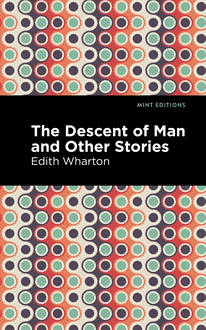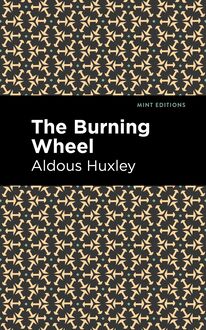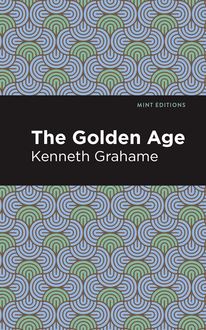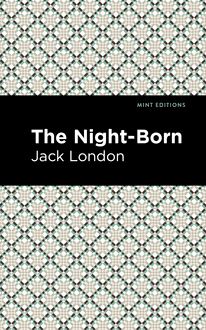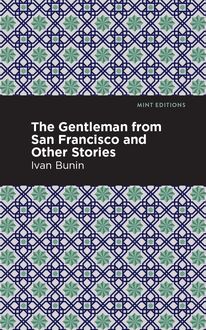-
 Univers
Univers
-
 Ebooks
Ebooks
-
 Livres audio
Livres audio
-
 Presse
Presse
-
 Podcasts
Podcasts
-
 BD
BD
-
 Documents
Documents
-
- Cours
- Révisions
- Ressources pédagogiques
- Sciences de l’éducation
- Manuels scolaires
- Langues
- Travaux de classe
- Annales de BEP
- Etudes supérieures
- Maternelle et primaire
- Fiches de lecture
- Orientation scolaire
- Méthodologie
- Corrigés de devoir
- Annales d’examens et concours
- Annales du bac
- Annales du brevet
- Rapports de stage
La lecture à portée de main
Vous pourrez modifier la taille du texte de cet ouvrage
Découvre YouScribe en t'inscrivant gratuitement
Je m'inscrisDécouvre YouScribe en t'inscrivant gratuitement
Je m'inscrisEn savoir plus
Vous pourrez modifier la taille du texte de cet ouvrage
En savoir plus

Description
Notable for the first appearance of P.G Wodehouse’s popular reoccurring characters, Bertie and Jeeves, The Man with Two Left Feet and Other Stories features thirteen funny and sentimental works of short fiction. The first story in the collection, Bill the Bloodhound follows a young detective named Henry Rice, who is in love with Alice, a woman who sings in a chorus. When Alice declines Henry’s marriage proposal, she admits that while she finds Henry sweet, she only wants to marry someone from her profession. Desperate for Alice’s love, Henry gives theater a try. Taking on an interesting perspective, two stories in the collection, The Mixer: He Meets a Shy Gentleman, and The Mixer: He Moves in Society features the narration of a terrier-boxer mix dog, who is incredibly social and observes the behavior of the humans around him. In Extricating Young Gussie, the famed characters Bertie and Jeeves are introduced. When Bertie’s cousin, Gussie, is set on marrying a woman that his mother does not approve of, Bertie’s aunt, Agatha, begs Bertie and Jeeves to convince her son to do otherwise. Finally, the title piece of the collection, The Man with Two Left Feet depicts a sweet and tender love story, following a man named Henry and his wife, Minnie. Though they share a comfortable relationship, Henry fears that he is boring. In attempts to surprise and impress Minnie, Henry, who is a rhythmless man, attempts to learn how to dance.
Set in both London and New York, P.G Wodehouse’s The Man with Two Left Feet and Other Stories feature a variety of settings just as it portrays an eclectic mix of protagonists. Crafted with masterful humor and a light-hearted tone, The Man with Two Left Feet and Other Stories remains to be a timeless collection of sentiment and humor.
This edition of The Man with Two Left Feet and Other Stories by P.G Wodehouse features a new, eye-catching cover design and is printed in a modern font to accommodate a contemporary audience.
Sujets
Informations
| Publié par | Mint Editions |
| Date de parution | 12 janvier 2021 |
| Nombre de lectures | 4 |
| EAN13 | 9781513275697 |
| Langue | English |
| Poids de l'ouvrage | 2 Mo |
Informations légales : prix de location à la page 0,0500€. Cette information est donnée uniquement à titre indicatif conformément à la législation en vigueur.
Extrait
The Man with Two Left Feet and Other Stories
P.G. Wodehouse
The Man with Two Left Feet and Other Stories was first published in 1917.
This edition published by Mint Editions 2021.
ISBN 9781513270692 | E-ISBN 9781513275697
Published by Mint Editions ®
minteditionbooks.com
Publishing Director: Jennifer Newens
Design & Production: Rachel Lopez Metzger
Typesetting: Westchester Publishing Services
C ONTENTS B ILL THE B LOODHOUND E XTRICATING Y OUNG G USSIE W ILTON’S H OLIDAY T HE M IXER— I T HE M IXER— II C ROWNED H EADS A T G EISENHEIMER’S T HE M AKING OF M AC’S O NE T OUCH OF N ATURE B LACK FOR L UCK T HE R OMANCE OF AN U GLY P OLICEMAN A S EA OF T ROUBLES T HE M AN WITH TWO L EFT F EET
B ILL THE B LOODHOUND
T here’s a divinity that shapes our ends. Consider the case of Henry Pifield Rice, detective.
I must explain Henry early, to avoid disappointment. If I simply said he was a detective, and let it go at that, I should be obtaining the reader’s interest under false pretences. He was really only a sort of detective, a species of sleuth. At Stafford’s International Investigation Bureau, in the Strand, where he was employed, they did not require him to solve mysteries which had baffled the police. He had never measured a footprint in his life, and what he did not know about bloodstains would have filled a library. The sort of job they gave Henry was to stand outside a restaurant in the rain, and note what time someone inside left it. In short, it is not “Pifield Rice, Investigator. No. 1.—The Adventure of the Maharajah’s Ruby” that I submit to your notice, but the unsensational doings of a quite commonplace young man, variously known to his comrades at the Bureau as “Fathead,” “That blighter what’s-his-name,” and “Here, you!”
Henry lived in a boarding-house in Guildford Street. One day a new girl came to the boarding-house, and sat next to Henry at meals. Her name was Alice Weston. She was small and quiet, and rather pretty. They got on splendidly. Their conversation, at first confined to the weather and the moving-pictures, rapidly became more intimate. Henry was surprised to find that she was on the stage, in the chorus. Previous chorus-girls at the boarding-house had been of a more pronounced type—good girls, but noisy, and apt to wear beauty-spots. Alice Weston was different.
“I’m rehearsing at present,” she said. “I’m going out on tour next month in ‘The Girl From Brighton.’ What do you do, Mr. Rice?”
Henry paused for a moment before replying. He knew how sensational he was going to be.
“I’m a detective.”
Usually, when he told girls his profession, squeaks of amazed admiration greeted him. Now he was chagrined to perceive in the brown eyes that met his distinct disapproval.
“What’s the matter?” he said, a little anxiously, for even at this early stage in their acquaintance he was conscious of a strong desire to win her approval. “Don’t you like detectives?”
“I don’t know. Somehow I shouldn’t have thought you were one.”
This restored Henry’s equanimity somewhat. Naturally a detective does not want to look like a detective and give the whole thing away right at the start.
“I think—you won’t be offended?”
“Go on.”
“I’ve always looked on it as rather a sneaky job.”
“Sneaky!” moaned Henry.
“Well, creeping about, spying on people.”
Henry was appalled. She had defined his own trade to a nicety. There might be detectives whose work was above this reproach, but he was a confirmed creeper, and he knew it. It wasn’t his fault. The boss told him to creep, and he crept. If he declined to creep, he would be sacked instanter . It was hard, and yet he felt the sting of her words, and in his bosom the first seeds of dissatisfaction with his occupation took root.
You might have thought that this frankness on the girl’s part would have kept Henry from falling in love with her. Certainly the dignified thing would have been to change his seat at table, and take his meals next to someone who appreciated the romance of detective work a little more. But no, he remained where he was, and presently Cupid, who never shoots with a surer aim than through the steam of boarding-house hash, sniped him where he sat.
He proposed to Alice Weston. She refused him.
“It’s not because I’m not fond of you. I think you’re the nicest man I ever met.” A good deal of assiduous attention had enabled Henry to win this place in her affections. He had worked patiently and well before actually putting his fortune to the test. “I’d marry you tomorrow if things were different. But I’m on the stage, and I mean to stick there. Most of the girls want to get off it, but not me. And one thing I’ll never do is marry someone who isn’t in the profession. My sister Genevieve did, and look what happened to her. She married a commercial traveller, and take it from me he travelled. She never saw him for more than five minutes in the year, except when he was selling gent’s hosiery in the same town where she was doing her refined speciality, and then he’d just wave his hand and whiz by, and start travelling again. My husband has got to be close by, where I can see him. I’m sorry, Henry, but I know I’m right.”
It seemed final, but Henry did not wholly despair. He was a resolute young man. You have to be to wait outside restaurants in the rain for any length of time.
He had an inspiration. He sought out a dramatic agent.
“I want to go on the stage, in musical comedy.”
“Let’s see you dance.”
“I can’t dance.”
“Sing,” said the agent. “Stop singing,” added the agent, hastily.
“You go away and have a nice cup of hot tea,” said the agent, soothingly, “and you’ll be as right as anything in the morning.”
Henry went away.
A few days later, at the Bureau, his fellow-detective Simmonds hailed him.
“Here, you! The boss wants you. Buck up!”
Mr. Stafford was talking into the telephone. He replaced the receiver as Henry entered.
“Oh, Rice, here’s a woman wants her husband shadowed while he’s on the road. He’s an actor. I’m sending you. Go to this address, and get photographs and all particulars. You’ll have to catch the eleven o’clock train on Friday.”
“Yes, sir.”
“He’s in ‘The Girl From Brighton’ company. They open at Bristol.”
It sometimes seemed to Henry as if Fate did it on purpose. If the commission had had to do with any other company, it would have been well enough, for, professionally speaking, it was the most important with which he had ever been entrusted. If he had never met Alice Weston, and heard her views upon detective work, he would have been pleased and flattered. Things being as they were, it was Henry’s considered opinion that Fate had slipped one over on him.
In the first place, what torture to be always near her, unable to reveal himself; to watch her while she disported herself in the company of other men. He would be disguised, and she would not recognize him; but he would recognize her, and his sufferings would be dreadful.
In the second place, to have to do his creeping about and spying practically in her presence—
Still, business was business.
At five minutes to eleven on the morning named he was at the station, a false beard and spectacles shielding his identity from the public eye. If you had asked him he would have said that he was a Scotch business man. As a matter of fact, he looked far more like a motor-car coming through a haystack.
The platform was crowded. Friends of the company had come to see the company off. Henry looked on discreetly from behind a stout porter, whose bulk formed a capital screen. In spite of himself, he was impressed. The stage at close quarters always thrilled him. He recognized celebrities. The fat man in the brown suit was Walter Jelliffe, the comedian and star of the company. He stared keenly at him through the spectacles. Others of the famous were scattered about. He saw Alice. She was talking to a man with a face like a hatchet, and smiling, too, as if she enjoyed it. Behind the matted foliage which he had inflicted on his face, Henry’s teeth came together with a snap.
In the weeks that followed, as he dogged “The Girl From Brighton” company from town to town, it would be difficult to say whether Henry was happy or unhappy. On the one hand, to realize that Alice was so near and yet so inaccessible was a constant source of misery; yet, on the other, he could not but admit that he was having the very dickens of a time, loafing round the country like this.
He was made for this sort of life, he considered. Fate had placed him in a London office, but what he really enjoyed was this unfettered travel. Some gipsy strain in him rendered even the obvious discomforts of theatrical touring agreeable. He liked catching trains; he liked invading strange hotels; above all, he revelled in the artistic pleasure of watching unsuspecting fellow-men as if they were so many ants.
That was really the best part of the whole thing. It was all very well for Alice to talk about creeping and spying, but, if you considered it without bias, there was nothing degrading about it at all. It was an art. It took brains and a genius for disguise to make a man a successful creeper and spyer. You couldn’t simply say to yourself, “I will creep.” If you attempted to do it in your own person, you would be detected instantly. You had to be an adept at masking your personality. You had to be one man at Bristol and another quite different man at Hull—especially if, like Henry, you were of a gregarious disposition, and liked the society of actors.
The stage had always fascinated Henry. To meet even minor members of the profession off the boards gave him a thrill. There was a resting juvenile, of fit-up calibre, at his boarding-house who could always get a shilling out of him simply by talking about how he had jumped in and saved the show at the hamlets which he had visited in the course of his wanderings. And on this “Girl From Brighton” tour he was in constant touch with men who really amou
-
 Univers
Univers
-
 Ebooks
Ebooks
-
 Livres audio
Livres audio
-
 Presse
Presse
-
 Podcasts
Podcasts
-
 BD
BD
-
 Documents
Documents
-
Jeunesse
-
Littérature
-
Ressources professionnelles
-
Santé et bien-être
-
Savoirs
-
Education
-
Loisirs et hobbies
-
Art, musique et cinéma
-
Actualité et débat de société
-
Jeunesse
-
Littérature
-
Ressources professionnelles
-
Santé et bien-être
-
Savoirs
-
Education
-
Loisirs et hobbies
-
Art, musique et cinéma
-
Actualité et débat de société
-
Actualités
-
Lifestyle
-
Presse jeunesse
-
Presse professionnelle
-
Pratique
-
Presse sportive
-
Presse internationale
-
Culture & Médias
-
Action et Aventures
-
Science-fiction et Fantasy
-
Société
-
Jeunesse
-
Littérature
-
Ressources professionnelles
-
Santé et bien-être
-
Savoirs
-
Education
-
Loisirs et hobbies
-
Art, musique et cinéma
-
Actualité et débat de société
- Cours
- Révisions
- Ressources pédagogiques
- Sciences de l’éducation
- Manuels scolaires
- Langues
- Travaux de classe
- Annales de BEP
- Etudes supérieures
- Maternelle et primaire
- Fiches de lecture
- Orientation scolaire
- Méthodologie
- Corrigés de devoir
- Annales d’examens et concours
- Annales du bac
- Annales du brevet
- Rapports de stage

